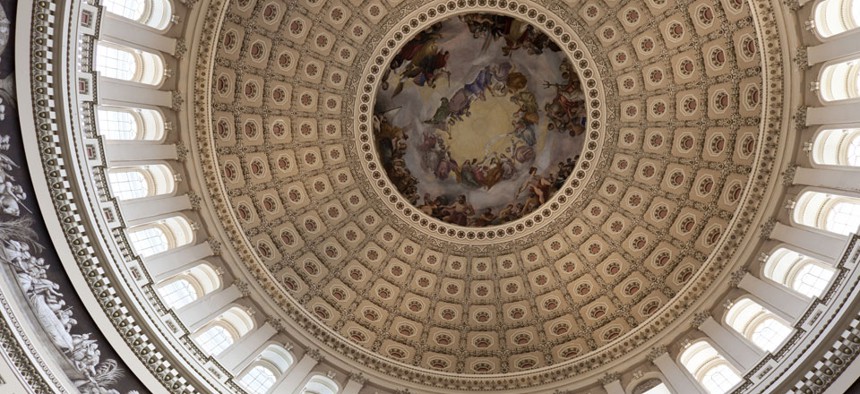Analysis: Senate Cybersecurity Bill Is Uncontroversial but Also Unambitious

fstockfoto/Shutterstock.com
Draft legislation looks nothing like the much-reviled House version.
While President Obama was busy shooting down the House Intelligence Committee's cybersecurity bill for the second year in a row, the Senate was quietly working on a bill of its own. After months of talks, a draft of the legislation has finally come out—and it looks nothing like the much-reviled House version. But that doesn't mean it's any better.
The 25-page document circulated by Senate Commerce Committee Chairman Jay Rockefeller, D-W.Va., details a handful of things. It formally codifies a project by the National Institute of Standards and Technology to draw up voluntary cyberguidelines for businesses. It calls for a national research program to study the country's electronic vulnerabilities, and for the development of secure ways of dealing with them. And it proposes a nationwide public-awareness campaign to teach Americans about cybersecurity. (After all, only you can prevent cyberinvasions!)
There are two ways to look at this. The first is that it accomplishes a lot of the boring work that needs to get done in order for the country to tackle cybersecurity with any level of competency. Take the part of the bill that funds educational programs like cyber-focused competitions, scholarships, and internships as a way to meet the enormous demand for American cyberwarriors. Without those employees, it won't matter how committed business leaders are to protecting their networks. Manpower is a prerequisite.
But the Senate proposal also avoids most of the harder—and more significant—questions. As Adam Segal, a cybersecurity expert at the Council on Foreign Relations, told National Journal, the discussion draft "looks pretty limited." It doesn't lay out any new rules on when a company has to admit it has been hacked or when user data like e-mail and passwords have been compromised, something the European Union is trying to figure out right now. It doesn't weigh in on giving companies liability protection in exchange for adopting NIST's voluntary cybersecurity guidelines—something businesses have repeatedly asked for, but Sen. Rockefeller has resisted. And it doesn't grant businesses greater flexibility to share information about online threats with each other and with the government.
The latter two are things the White House, recognizing the boundaries of its authority, specifically asked Congress to address on its own when Obama unveiled a landmark executive order on cybersecurity in February. At that point, administration officials insisted that the presidential directive was merely a "down payment" on legislation.
So far, that down payment has bought two different legislative strategies from Congress. In the House, the Intelligence Committee simply re-upped the Cyber Intelligence Sharing and Protection Act, a bill that drives directly at information-sharing but drew loud complaints from civil libertarians over its potential for privacy violations. This strategy gets right to the point, but pushing it through will be a slog for everybody.
By contrast, the Senate has shied away from controversy. That's led to provisions in the proposed bill that call for, for instance, studies of educational curricula so that we might someday institute bettereducational curricula. Everyone can get behind education—but tweaking higher ed at the margins doesn't really match the rising level of apocalyptic rhetoric in Washington.
The Senate's recommendation that NIST develop voluntary standards is itself a rehash of what's contained in Obama's executive order, although a Commerce Committee source said codifying it into law would be helpful if the executive order ever expired.
In fairness, it's just a first draft.
"It’s a start," said James Lewis, a cybersecurity expert at the D.C.-based Center for Strategic and International Studies. "A good placeholder until something more immediately meaningful can be passed."
A markup is coming later this month. But unless that process leads to significant additions, the Senate bill might turn out to aim fairly low.





